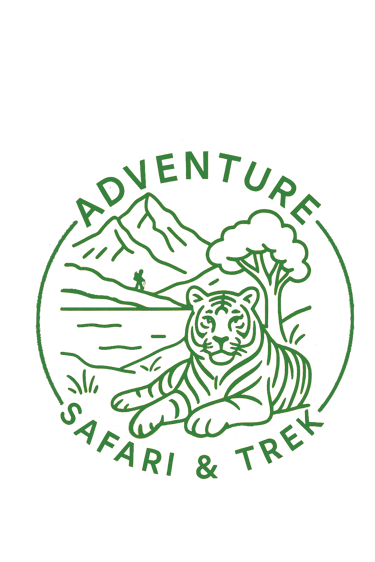Good to Know
You Set Off : Key Information for Your Trip
Here’s a practical overview of approximate travel distances and times between some of Nepal’s major cities.
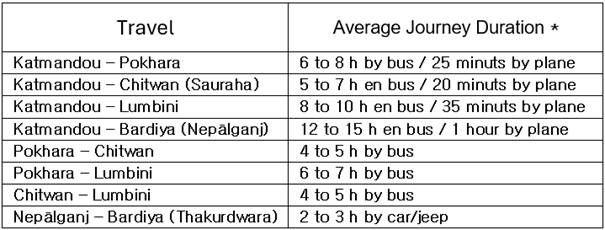

Travel times may vary significantly depending on road conditions, weather, and traffic.
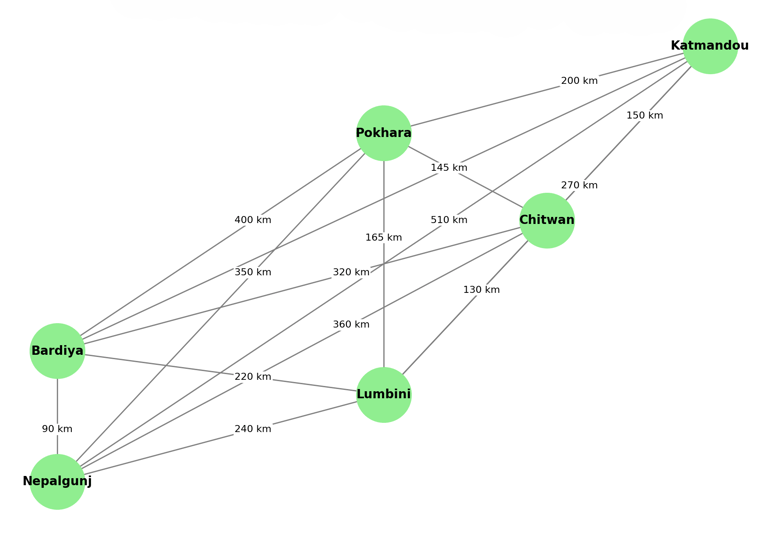

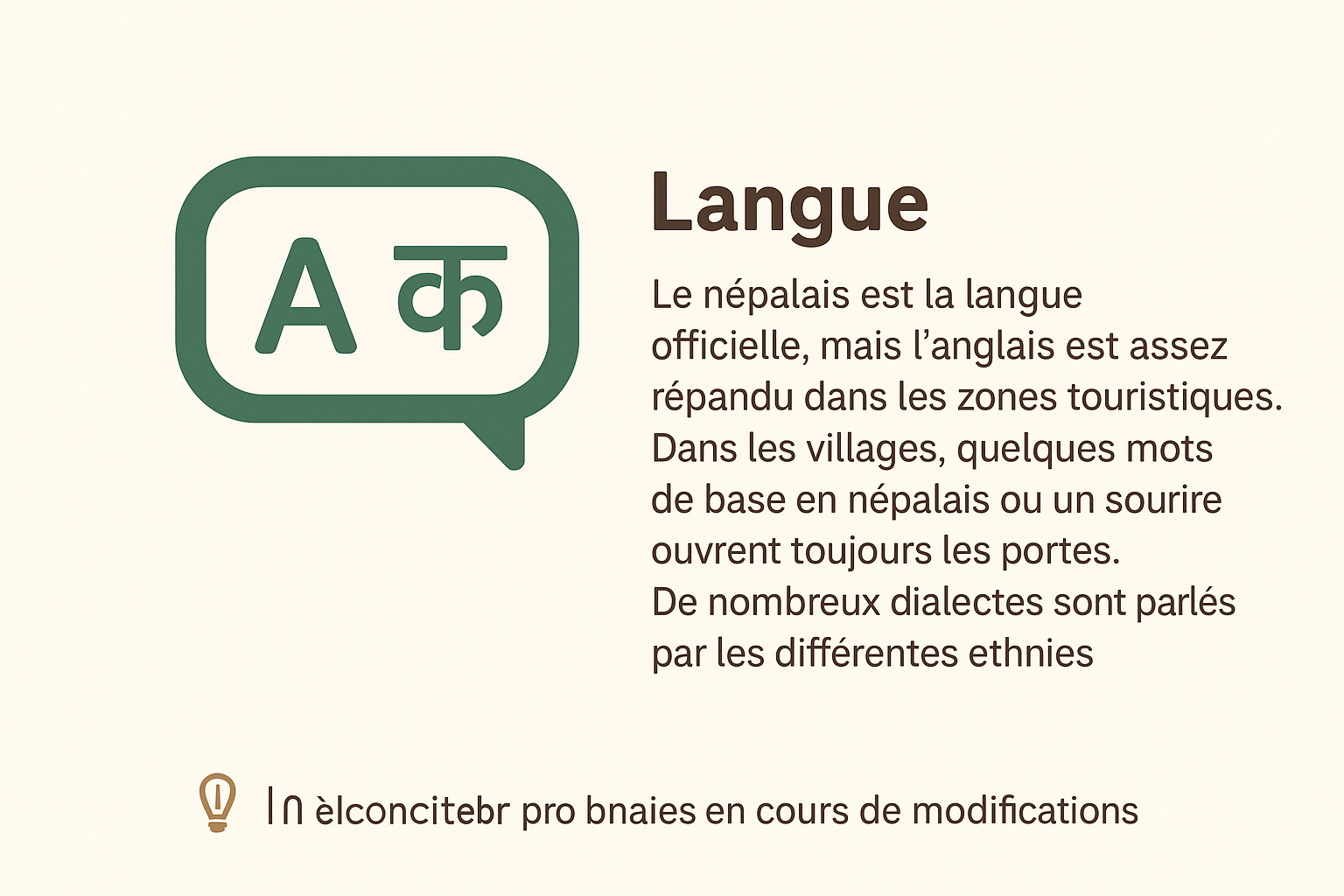

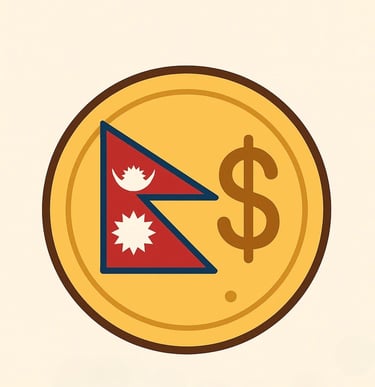

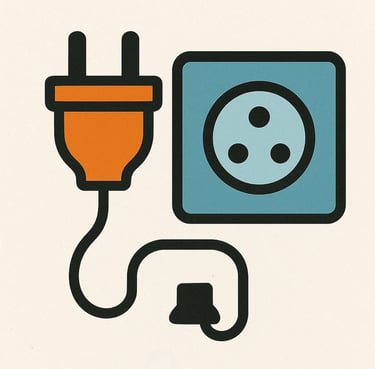

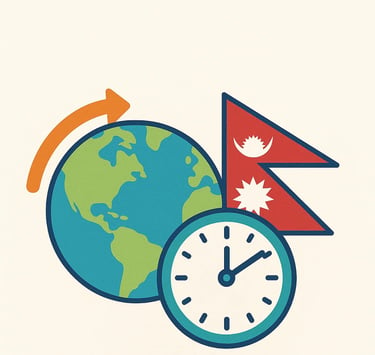

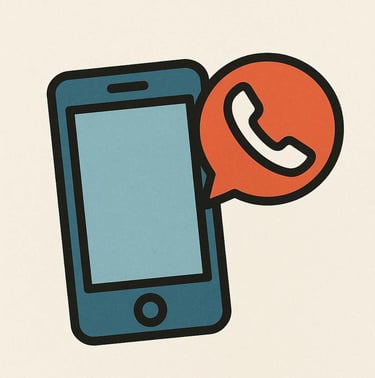

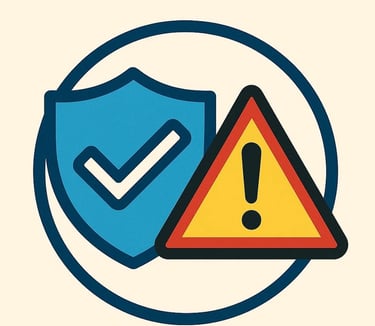

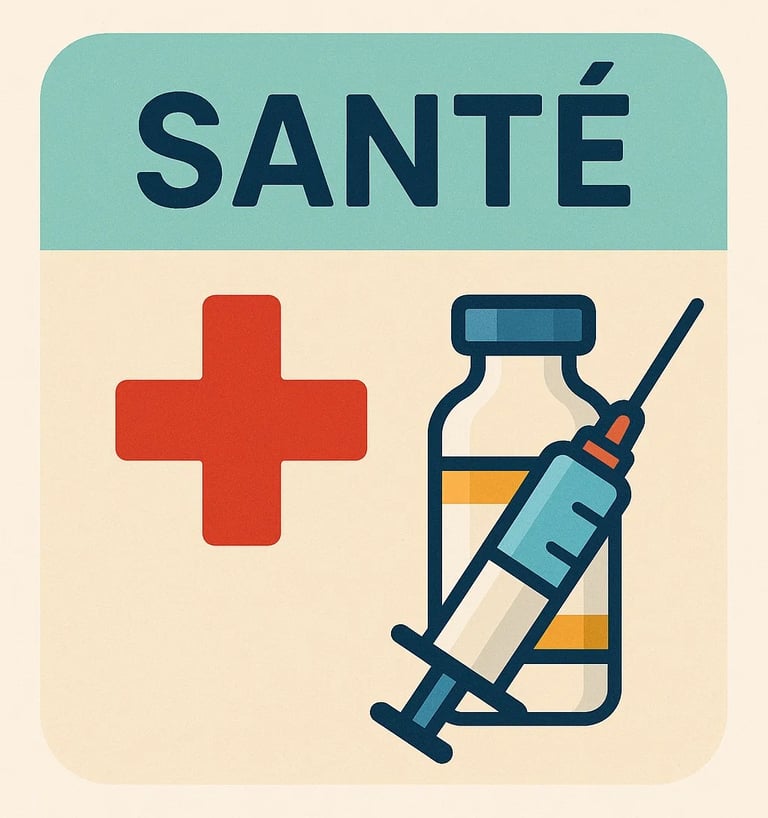



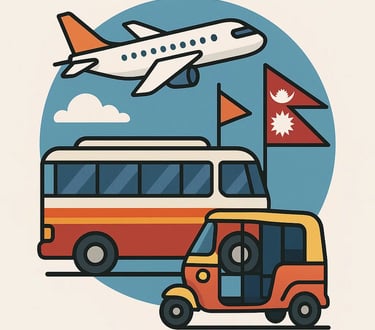

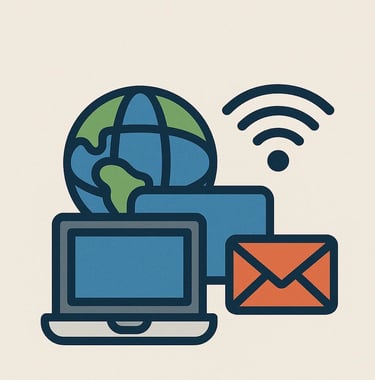

Languages Spoken in Nepal
The local currency is the Nepalese Rupee (NPR). Most payments are made in cash. ATMs are available in major cities but are limited in rural areas. Credit cards are widely accepted in hotels, and US dollars or euros can often be used for payment as well.
🕒 Bank Hours in Nepal
Day Typical Hours (Main Branch / Standard Branches)
Sunday to Thursday ~10:00 AM – 4:00 PM for most banks. Some branches open at 9:45 AM and close around 5:00 PM.
Friday Shorter day: closing between 12:30 PM and 2:00 PM depending on the bank.
Saturday Most banks are closed.
Europe (France, Belgium, Switzerland): +4h45 in winter / +3h45 in summer
United Kingdom: +5h45 in winter / +4h45 in summer
Australia (Sydney): +4h15 in winter / +5h15 in summer
United States:
East Coast (New York): +9h45 in winter / +10h45 in summer
West Coast (Los Angeles): +12h45 in winter / +13h45 in summer
Buying a local SIM card in Nepal is easy at Kathmandu Airport or in major cities. The two main operators are Ncell and Nepal Telecom.
Purchase: You’ll need a passport and a passport-size photo for registration. The SIM is usually activated within an hour.
Cost: Very affordable—a few euros for a SIM with basic credit and a data plan.
Top-ups: Available everywhere—small shops, kiosks, and supermarkets. Simply buy a top-up card and enter the code on your phone.
Network & Coverage: Good coverage in cities and tourist areas; limited in mountains and remote regions.
Mobile Internet: Cheap 3G/4G data plans, often more reliable than hotel Wi-Fi in rural areas.
👉 Tip : Choose Ncell for travel in tourist hubs (Kathmandu, Pokhara, Chitwan, Bardiya) and Nepal Telecom for slightly better coverage in remote areas.
Nepal’s electricity is 220V, with Type C and D sockets. Bring a universal adapter to ensure your devices can be charged. Power outages can occur, especially outside Kathmandu, so it’s wise to carry a headlamp or power bank for convenience and safety.
Nepal is generally safe, but stay alert in major cities for pickpockets and exercise caution on the roads. While trekking, always follow your guide’s instructions to minimize risks from terrain, wildlife, or changing weather conditions.
Most hotels and lodges offer Wi-Fi, though connections can be variable. In remote areas, signal may be limited or absent—perfect for a chance to disconnect and fully immerse yourself in nature.
In Kathmandu, taxis and rickshaws are the main modes of transport. For longer distances, tourist buses or private vehicles are commonly used, though roads can be slow and occasionally bumpy. Domestic flights connect major cities and trekking regions, offering a faster and convenient alternative.
Tipping is common for guides, drivers, porters, and restaurant staff. In local markets, bargaining is customary, but always approach it with a smile and respect to ensure a friendly exchange.
No vaccinations are mandatory, though some are recommended, including Hepatitis A, Typhoid, and a booster for DTP-polio. Tap water is not safe to drink—stick to bottled or treated water. Carry a small first-aid kit, especially for trekking and outdoor activities.
Nepali is the official language, while English is widely understood in tourist areas. In villages, a few simple Nepali words—or even just a warm smile—go a long way in creating genuine connections. Nepal is also home to many ethnic groups, each with its own dialect, adding to the country’s rich cultural diversity.
Some useful words:
Namaste (नमस्ते) – Hello / Goodbye
Dhanyabad (धन्यवाद) – Thank you
Kripaya (कृपया) – Please
Maaf garnus (माफ गर्नुहोस्) – Excuse me / Sorry
Ho (हो) – Yes
Hoina (होइन) – No
Tapaiko naam ke ho? (तपाइको नाम के हो?) – What is your name?
Mero naam… ho (मेरो नाम … हो) – My name is…
Tapai kasto hunuhunchha? (तपाइ कस्तो हुनुहुन्छ?) – How are you?
Ma sanchai chu (म सन्चै छु) – I am fine
Currency and Payments
Mobile SIM Cards
Tips and Bargaining
Safety and Hazards
Postal Service
Postal services are available but generally slow, so plan accordingly if you need to send mail.
Electricity
Time Difference
Health
Transportation
Internet and Communication
ADVENTURE SAFARI & TREK
Experience Nepal’s hidden gems: from majestic landscapes to living traditions.
